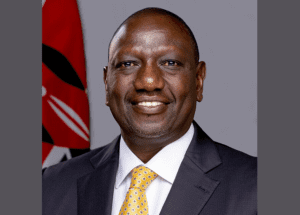
Australia Promotes Pro-Business Agenda

The BGA Australia Team, led by Managing Director Michael “Mick” McNeill, wrote an update to clients on Australia’s pro-business policies.
Context
- The government proposed a large spending agenda in the May 2025 election campaign, comparing Australia’s social welfare system to that of the United States. The size of Albanese’s victory has emboldened those seeking to entrench a leftward shift in Australia’s politics, economics and culture. This term of government is a significant test for Treasurer (and prime ministerial aspirant) Jim Chalmers, who has declared that lifting productivity is his priority. Businesses are looking to Chalmers, now apparently open to supply-side approaches, to drive the economic policy agenda.
- The reelected Labor government of Prime Minister Anthony Albanese is under pressure to develop policies aimed at lifting productivity and repairing the budget while meeting commitments to social welfare spending ahead of Parliament opening July 22. Much focus is on the government’s Economic Reform Roundtable to be held next month, which aims to build consensus for long-term economic reform. However, skeptics fear the center-left government — mindful of its union backers and a left-leaning Labor caucus — has little ambition to implement meaningful changes.
Significance
- Australia needs to lift its labor productivity, economic growth and business investment. Australia’s low unemployment rate belies an economy that, in recent years, has been fueled by federal and state spending on civil servants, health, aged care and disabilities services at a time of pro-union workplace laws and skills shortages. Electricity prices have risen significantly as federal and state governments pursue ambitious emissions and renewable energy targets. Some are concerned that federal and state governments have not sufficiently wound back spending since the COVID-19 era and that government spending is crowding out the private sector and deepening structural budget deficits. Intergenerational equity — including in the context of house prices, the cost of higher education and climate change — is a strong theme in economic commentary. Younger Australians are increasingly rejecting the major political parties.
- Albanese has acknowledged the need to improve government services, target regulatory duplication and remove barriers to investment. “But not every challenge can be solved by government stepping back,” he said. Albanese wants the government to “step up” in education, skills, infrastructure, research and innovation. Chalmers has directed regulators to identify regulations that can be cut or simplified to reduce costs and boost economic growth.
Implications
- An Economic Reform Roundtable will be held from August 19-21 and led by Chalmers. It will focus on three main themes: lifting productivity, building resilience in the face of global uncertainty and strengthening the budget. Leaders from business, unions and civil society will be featured. The Productivity Commission’s interim reports identifying Australia’s five pillars of productivity will be a key input in the discussion. The pillars include creating a more dynamic and resilient economy; building a skilled and adaptable workforce; harnessing data and digital technology; delivering quality care more efficiently; and investing in cheaper, cleaner energy and the net zero transformation. Businesses would like tax reform and more flexible workplace laws. Although it is an invite-only event, ideas and proposals can be submitted by July 25.
- Chalmers aims to streamline foreign investment and environmental approvals and to “capitalize on the huge gains on offer” from artificial intelligence (AI) and the digital economy. The government intends to finalize proposed mandatory guardrails for AI, a national AI action plan and a strategic examination of research and development this year. It will also promote competition in digital platform markets; a consultation process was completed in February.
We will continue to keep you updated on developments in Australia as they occur. If you have any comments or questions, please contact BGA Australia Managing Director Michael McNeill at mmcneill@bowergroupasia.com.
Best regards,
BGA Australia Team

Michael McNeill
Managing Director
Mick is a highly-experienced government relations expert and trusted advisor on consensus building, conflict resolution and legislative developments. He has played an integral role in helping parties achieve desired outcomes in areas of national security, health policy, foreign policy and reputational crisis management, as well as media relations, communications campaigns, immigration and human rights. Mick has two decades’ experience working with government as a media analyst, political adviser and NGO advocacy manager. After a stint serving as an adviser to an Australian senator, Mick took on the role of the locally engaged senior political specialist at the U.S. Embassy in ... Read More
×
























